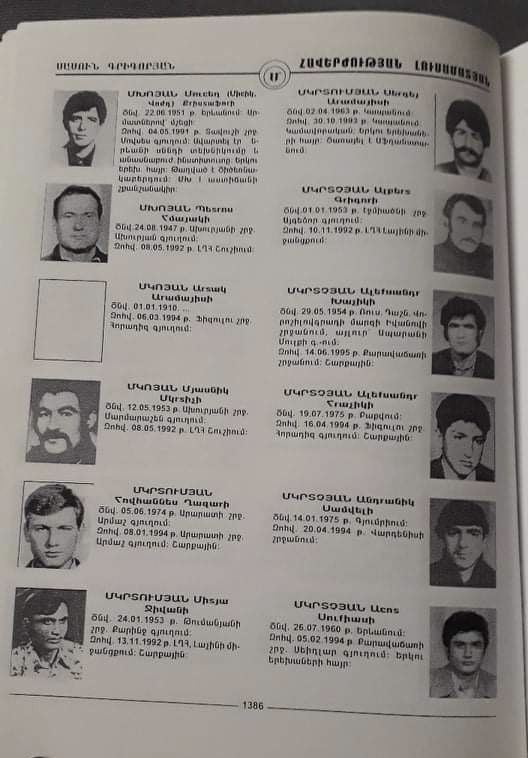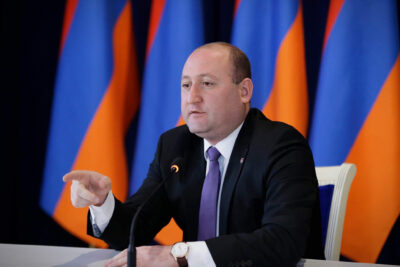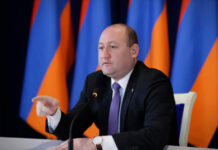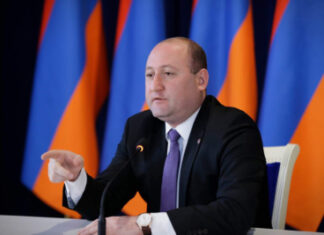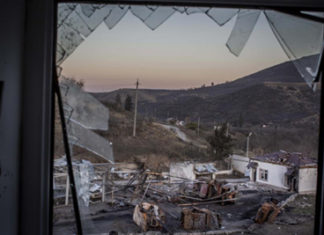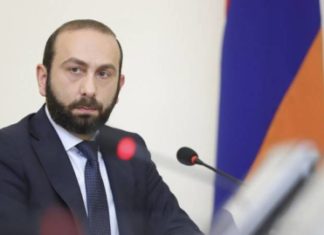LOS ANGELES – When we won the war in Artsakh in 1994, it felt like we conquered the entire world! But very soon that world was wrapped with a black ribbon engraved with the golden names of boys, uncles, fathers and grandfathers, who became the most mystical heroes for us. And we became the heirs of that war. I received my inheritance from my uncle, Ashot.
He left to fight one autumn day as quietly as he lived his life. He came to visit us for the last time. He sat down with my father, to have his last meal and have a last drink as a civilian. Maybe my father was trying to convince him not to leave. At least I was praying for him to do so. I never saw a real uniform.
Gradually intensifying whispers reaching my bedroom and the slightly moving shoulder in camouflage were telling scary tales of the war that would soon become an inseparable part of our young lives.
Ashot was an ordinary guy, with a wife and two children. Ordinary in life and in the war. Never saw a firearm, never fired one. No heroic tales were published in books about him. But he was our hero; the hero of my childhood.
We didn’t understand what the loss of a young man was. But I never called my own father mine again in front of my cousins. The war in Artsakh devoured the best of every single family in Armenia, leaving behind a generation of orphans and widows, the constant visitors of Yerablour, a 110-acre cemetery of fallen heroes on a mountain, celebrating their children’s birthdays and graduations, weddings and christenings with the tall picture of a once-young man chiseled on a gravestone. Later, writer Sasoun Grigoryan wrote a whole book, an encyclopedia of heroes fallen during the war In Artsakh. Ashot was one of them, placed modestly on the corner of a page.
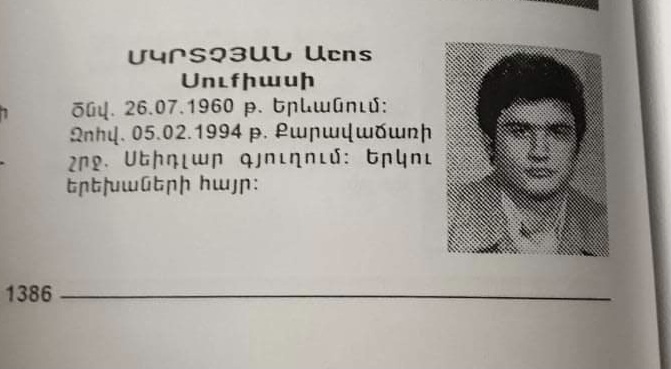
Thirty years later, the heirs of the first Artsakh war accepted their inheritance to fight again. On September 27, Azerbaijan, backed by Turkey, using mercenaries from Syria, decided that there weren’t enough gravestones in Yerablour.
